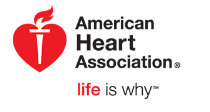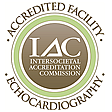Your Apple Watch Can Do A Lot – Part One
It Can Even Track Your Heart Health
Technology is always expanding. One of the most exciting products on the market is the Apple Watch. Cutting-edge gadgets and apps are bringing easy healthcare monitoring to more people. Improving and maintaining health is getting easier for everyone, not just fitness monitor users.
What Was Added? How Can It Help?
Apple Watch has launched an ECG monitoring app, which works as an electrocardiogram and the US Food and Drug Administration has approved. The wristband sensors monitor the wearer’s heartbeat in 30-second intervals and create a waveform readout. The monitor sends an alert if the heart is beating too fast or too slow over a series of checks. It is one of the only ways to easily detect an irregular heartbeat called atrial fibrillation, a type of arrhythmia.
Atrial fibrillation increases the risk of stroke and other health complications. Traditionally, atrial fibrillation is difficult to detect because it can come and go intermittently and may not cause easily identifiable symptoms. With the Apple Watch ECG monitor app, the wearer receives a notification of an irregular heartbeat and can note symptoms such as light-headed, winded, or energetic.
Those Who Might Benefit
Those with a history of high blood pressure, irregular heartbeat, or any symptoms of heart disease will benefit the most from the Apple Watch monitoring. The real-time data allows for a more informed conversation with the doctors at Carolina Heart and Leg Center, P.A. Your doctor may prescribe lifestyle changes or treatments to prevent a health crisis.
Although being able to track vitals and statistics can give you the chance to monitor your own health, we’ll share reasons why your Apple Watch can’t replace your doctor in the next blog. Until then, keep track of your information and share it with your doctor at your next visit to Carolina Heart & Leg Center, P.A. Call us at 910-491-1760 to schedule your appointment.
*Stock photographs and artwork are for illustrative purposes only. **This blog/post contains general information about medical conditions and treatments. The information is not advice, and should not be treated as such. You must not rely on this blog/post as an alternative to medical advice from your doctor or other healthcare providers. Please see our full disclaimer at www.CarolinaHeartAndLeg.com.





